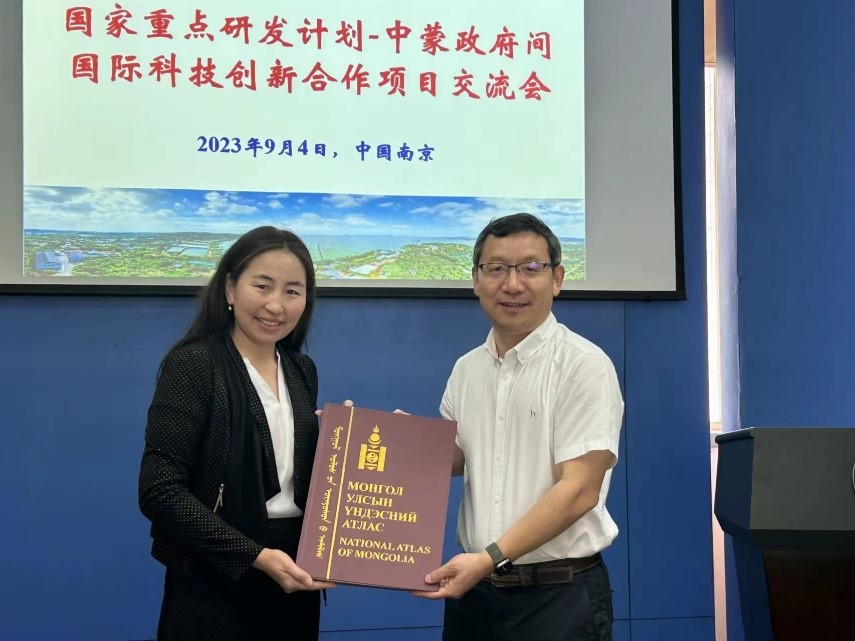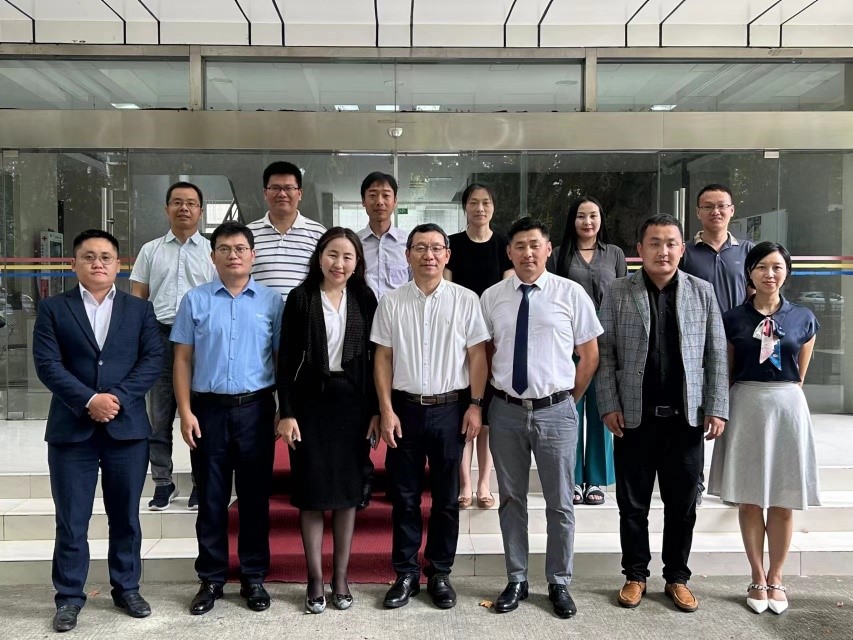National Key Research and Development Program Plan (Sino-Mongolian international cooperation project) Successfully Convoked in Nanjing and Bayannur
On September 4th to 7th, 2023, the symposiums on the establishment and implementation of the National Key Research and Development Program of China, i.e. Sino-Mongolian Intergovernmental Joint Research Program: The impacts of global change on nutrient cycles and ecosystem evolution in shallow lakes in Sino-Mongolian cold-arid area (No. 2023YFE0100500) were successfully held in Nanjing and Bayannur.
Prof. ZHANG Ganlin, the director of Nanjing Institute of Geography and Limnology, Chinese Academy of Sciences (NIGLAS), delivered a welcoming address on behalf of the host institution. Dr. Odsuren, the scientific secretary of the Institute of Geography and Geoecology, Mongolian Academy of Sciences (IGG, MAS) made a detailed introduction of IGG, MAS.
After that, the project leader Dr. HAN Chao, introduced the current state of lake ecosystems in China and presented a comprehensive report on the overall research objectives, content, implementation plan, expected outcomes, innovative aspects, task decomposition, and progress schedule of the joint project. Followed, Dr. Narangerel from IGG, MAS presented a detailed introduction to the research team's prior achievements in the field of lake science in the cold-arid regions of Mongolia and the current ecological environment of Lake Ugii.
During the local coordination symposium held in Bayannur, Inner Mongolia, Director Bao Wei from Wuliangsu Lake Ecological Protection Center extended a warm welcome to the attending experts. He emphasized that this project was a significant decision and deployment for the protection and comprehensive management of Wuliangsu Lake, which would effectively support the ecological environment protection on Wuliangsu Lake. Subsequently, the joint program teams carried out discussions and communications with the local administrators regarding the implementation plan, research platform status and infrastructure, data collection and sharing, preparation of field instruments and equipment, training of young researchers, and fieldwork plans. After the meeting, all members conducted the field surveys on Wuliangsu Lake.
More than 20 experts and major leaders from NIGLAS, IGGMAS, and Wuliangsu Lake Ecological Protection Center participated in the symposiums. It further expanded the researcher exchanges and cooperation, promoted friendly contacts and mutual understanding between the two sides, which played a significant role in facilitating the smooth implementation of the joint project.


(photo by NIGLAS)
